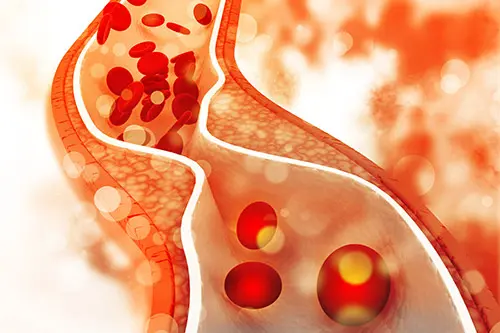Personalise your menopause blood test
Add to your test
2 add-ons availableChoose how to collect your sample
4 optionsFinger-prick blood collection
Total price:
£99.00
Includes our
Perimenopause and Menopause Blood Test
Looking to understand how the menopause may be affecting your health? Take our Perimenopause and Menopause Test to find out.
Our Perimenopause and Menopause Test is quick and easy. Just take your finger prick blood sample with our at home kit and use the pre-paid envelope to return your sample to our accredited lab.
What you need to know about our Perimenopause and Menopause Blood Test
The menopause brings with it hormonal changes that can affect your health in many ways. A lower level of oestrogen increases your risk of:
- Heart disease
- Diabetes
- Osteoporosis (weak bones)
Our Perimenopause and Menopause Blood Test looks at blood markers related to these conditions, giving you insight into your personal risk profile and what you can do to optimise your health.
What are the menopause symptoms?
Perimenopause symptoms and menopause symptoms are very similar, although everyone’s experience of perimenopause and menopause are different.
Here are some of the common perimenopause & menopause symptoms:
- irregular periods
- hot flushes
- reduced sex drive
- vaginal dryness
- difficulty sleeping
- muscles and joint aches and pains
- difficulty concentrating ('brain fog')
- low mood
What's the difference between the perimenopause and menopause?
Perimenopause describes the transition phase that women go through before reaching the menopause. The perimenopause often starts months or years before periods actually stop. The menopause itself is a specific point in time, usually defined as one year after your last period.
During the perimenopause, you may still have periods, though they're often irregular, and you can also still get pregnant. After the menopause, your periods will stop and you can no longer get pregnant without the assistance of IVF.
How the menopause blood test works

Do your menopause blood test
You'll get your kit next-working day.
Collect your blood sample at home and send it back to our UKAS-accredited lab for analysis.

Get rapid results
Once the lab have your sample, you'll get your menopause blood test results quickly.
You'll get your results and doctor's report in your online dashboard. You'll also be able to download your formal lab report to share with your GP if you wish.

Improve your health
Numbers are useful, but it's what you do with them that counts.
We translate your menopause blood test results into clear explanations and practical next steps, so you can make changes that support your health through the perimenopause and menopause.
What's tested in the Perimenopause and Menopause Blood Test?
Thyroid health
Thyroid problems are more common in women and become commoner as you get older so it's important to check your thyroid function as you approach the perimenopause and menopause. Thyroid health also influences your risk of heart disease and osteoporosis.
What's measured: (Click on a test for more info)
Vitamin D
Bone density decreases after the menopause which can lead to osteoporosis. Vitamin D is essential for bone health and ensuring your levels are optimum can lower your risk of osteoporosis.
Sugar-handling
After the menopause, your body can't handle sugar as well as it used to which increases your risk of diabetes. HbA1c is a measure of your blood sugar control over the last 3 months.
What's measured: (Click on a test for more info)
Cholesterol profile
Cholesterol levels tend to go up in the perimenopause and menopause and they're the biggest driver of heart disease. Ensuring your cholesterol levels are optimal is key to minimise your cardiovascular risk.
What's measured: (Click on a test for more info)
Perimenopause and menopause FAQs
Perimenopause is the period of time leading up to the menopause when women may begin to experience irregular periods and other symptoms. The perimenopause may start months or years before periods actually stop.
Menopause is a point in time 12 months after a woman's last period. For most women this occurs between the ages of 45 and 55 years but it can happen earlier.
Early menopause is defined as menopause (i.e. no periods for one year) that happens between ages 40 and 45. About 1-in-20 women will naturally go through early menopause. There are some factors that make early menopause more likely:
- family history: e.g. if your mother had early menopause you are more likely
- smoking
- some autoimmune conditions
It's best to take your blood samples in the morning, before you've eaten any food. Avoid any biotin supplements for two days before this taking this test. If biotin is prescribed by your doctor then you should discuss with them before stopping it.
On average, menopause symptoms last for about 4 years from your last period. Symptoms will often change over time and some women can continue to experience symptoms for 10 to 14 years.
For most women the perimenopause begins between ages 45 and 55.
Although the perimenopause and menopause can cause many symptoms, some of its most important effects are those that you cannot see or feel. The hormonal changes during this stage in life significantly affect your metabolic health - your cholesterol levels and sugar-handling for example. These have a big impact on your risk of heart disease, stroke, dementia and even cancer. Bone density also falls during this period putting you at higher risk of fractures. Our Perimenopause and Menopause Blood Test is largely designed to give you insights into these factors so you can optimise your health and reduce your risk.
We also test your thyroid function because thyroid conditions become more common as women age and can cause very similar symptoms to those of the perimenopause. Lastly we can optionally check your hormone levels which can give you an indication of whether you're likely to be perimenopausal. You may not require these if your symptoms are typical and you're between 45 and 55 but they can be useful if there's any doubt.
Testing levels of LH, FSH and oestradiol can give an indication of the perimenopause or menopause but you do not need a blood test to tell if you are perimenopausal or menopausal. You can usually tell if you're perimenopausal based on your age (typically between 45 and 55) and the symptoms you're experiencing. Similarly, the menopause is defined as the time one year after your last period.
However, blood tests for hormones can still be useful for a number of reasons. Firstly, sometimes perimenopause symptoms can be confused with other conditions. For example, thyroid disease is very common as women get older and can cause many of the same symptoms as the perimenopause. Secondly, blood tests can be useful to indicate that the perimenopause is likely if you're unsure of the cause of symptoms. This can sometimes be the case if you're younger than is typical for the perimenopause - e.g. under 45.
Still have questions?
If you have any questions, we're here to help. Our customer service team is hands-down the best you'll ever deal with. They're smart, friendly, knowledgeable and will get back to you in a flash.
We've got the stats to back it all up.
When it comes to health, you want to know you’re in safe hands. We’ve got decades of experience, and we’ve got the stats to prove it.
20+
Years in healthcare
65,000+
5 star reviews

1 million+
Happy customers
2 million+

Our Privacy Promise
Your health is yours. It's personal. That's why we're committed to keeping your data safe and secure. Here's how we do it:
See our Privacy Policy and our Terms of Service for more info.






-blood-test-box.jpg&w=3840&q=75)